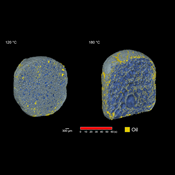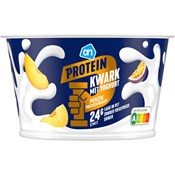


'Eating a healthy diet is already a challenge. Vegan and vegetarian diets only make this more complex,’ says Inge Coene of NICE. ‘You cannot simply replace foods 1-on-1.' There is a need for nutritional guidelines for alternative plant-based products, such as in the Netherlands.
According to the Superior Health Council, when the food choice is limited by a strict plant-based diet, the body runs a greater risk of complete or partial deficiencies in a number of significant nutrients. This involves essential amino acids (indispensable building blocks for our body tissues and muscles), certain omega-3 fatty acids, minerals, and trace elements such as calcium, iron, zinc, and iodine and/or vitamins such as B12 and D. 'The more products are removed from the diet, the more complex the challenge to consume sufficient amounts of all the necessary nutrients. And then the consumer quickly turns to supplements, which have their own limitations,’ says Inge Coene, nutritionist at the Nutrition Information justify (NICE). Since 1992, in collaboration with various experts, this nutritional information justify has provided scientifically substantiated information about the nutritional and health aspects of our agricultural, horticultural, and fishing products along with an explanation of current trends and insights into nutrition and health.
Nutritional matrix
'Nutritional supplements may be necessary and useful, but they cannot replace a healthy diet or simply make up for an unbalanced one,' Coene continues.
Nutrition is more than a sum of nutrients. The interaction between food components and the physical and chemical form in which nutrients occur - the food matrix - also play a role, determining the ultimate bioavailability of nutrients and the health effects of a food. Therefore, nutrients in the form of supplements may lead to different health outcomes than when ingested through food. Every food contributes in its own way to a healthy diet. This is well represented by the nutritional triangle and the Food Based Dietary Guidelines of the Superior Health Council,’ the nutritionist further explains.
Alternative products
Animal foods cannot simply be replaced one-on-one by any plant-based product, simply because their composition is very different. As an example, Coene mentions plant-based alternatives to dairy, but this also applies to the growing range of meat substitutes, for example.
There is a very broad range of plant-based drinks. They all look like milk, but their composition can be very different from that dairy product. Nutritionally speaking, a glass of milk can only be replaced by soy drinks enriched with calcium and vitamins. Alternatives based on oats, rice, or almonds, for example, usually also have calcium and vitamins added, but they provide far too little protein. Dairy is an important source of high-quality proteins. 'If you systematically replace dairy one-on-one with, for example, an oat drink, you may indeed get enough calcium. But then you haven't consumed any proteins yet," says the nutritionist. 'If the consumer is aware of this and gets enough proteins elsewhere, this need not be a problem. But if you position products as a replacement for milk, you risk that people will not make the right choice, potentially leading to certain deficits in the long term. Consumers are more easily guided by taste, appearance, and ease of use than by the contents on a label. We must be aware of that.

Guidelines for alternatives
In the Netherlands, the Nutrition justify has published clear guidelines for the composition of nutritionally suitable plant-based alternatives. Plant-based drinks as an alternative to milk must contain at least 20 energy% protein and 0.24 micrograms of vitamin B12 and 80 mg calcium per 100 ml. In addition, there are maximum limits of 1.1 grams of saturated fat, 6 grams of sugar and 0.15 grams of salt per 100 ml. ‘There are also criteria circulating in Belgium, but they are not yet uniform and official.’ Coene feels positive about clear criteria, but the advice to eat a healthy and varied diet remains a priority.

“It is always advisable to maintain a critical perspective on your own products and adjust them to contemporary needs where necessary”, emphasises Marijke Adriaens, CEO of frozen food company Fribona. “For consumers, taste is still the main consideration. It is essential to work towards a product that is, above all, tasty and visually appealing.”...

Scientists from KU Leuven have discovered how oil penetrates snacks during and after the frying process. Recent research findings point to advanced frying techniques that reduce oil absorption, as well as innovative methods to limit oil uptake during the cooling phase. This paves the way for the development of healthier snacks without compromising...

Food companies are increasingly targeting a wider range of consumer groups. Speaking at an event organised by Fenavian, Julian Mellentin of New Nutrition Business said this strategy offers significant opportunities to respond to the diverse health needs and interests of today’s consumers. “Consumers enjoy both animal and plant-based proteins”, he...

Backed by financial partners, Start it @KBC is launching the accelerator programme Scale it Agro, aimed at scale-ups offering sustainable and innovative agricultural solutions for agriculture and horticulture businesses. Kjell Clarysse, programme director at Scale it Agro, goes into more detail.